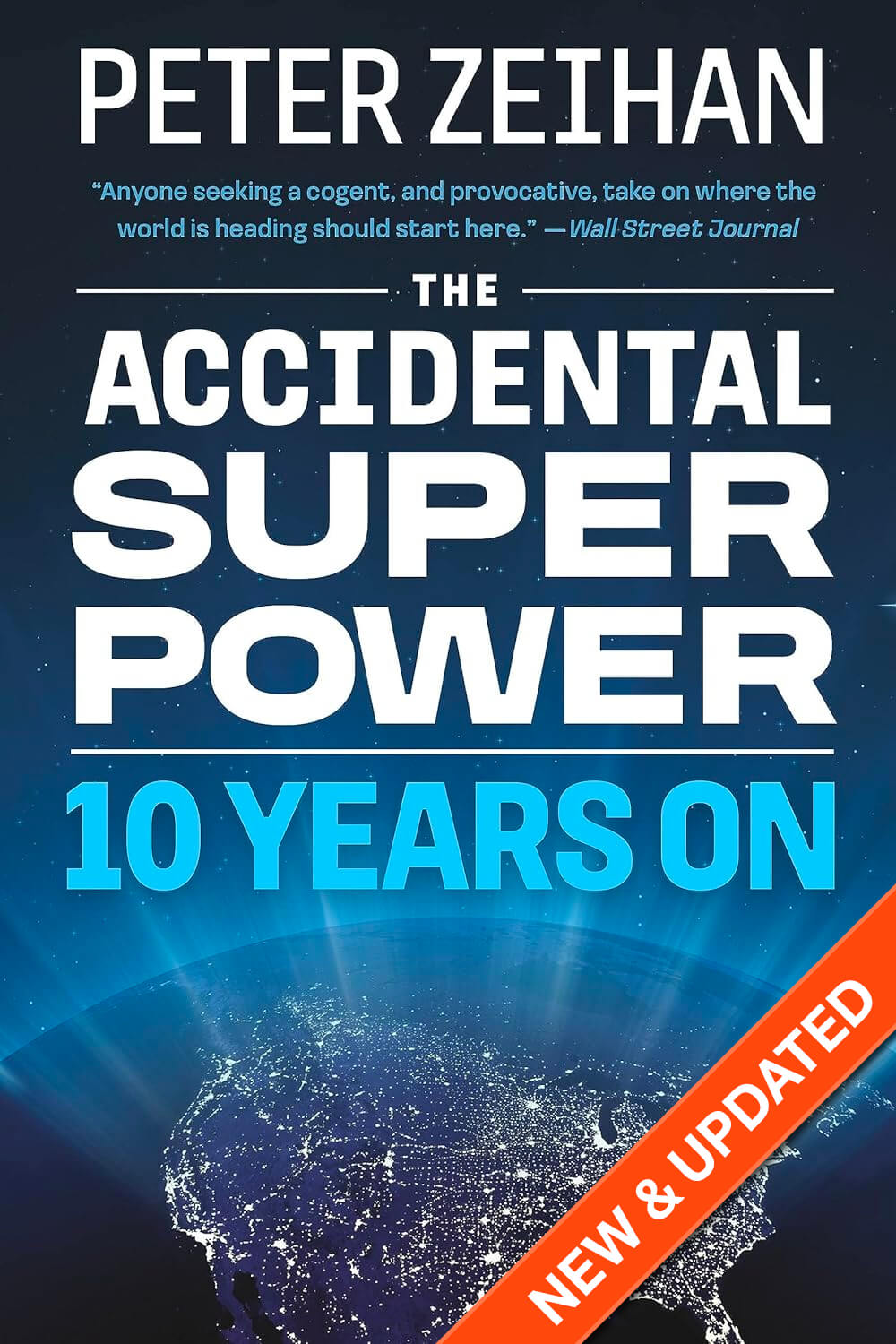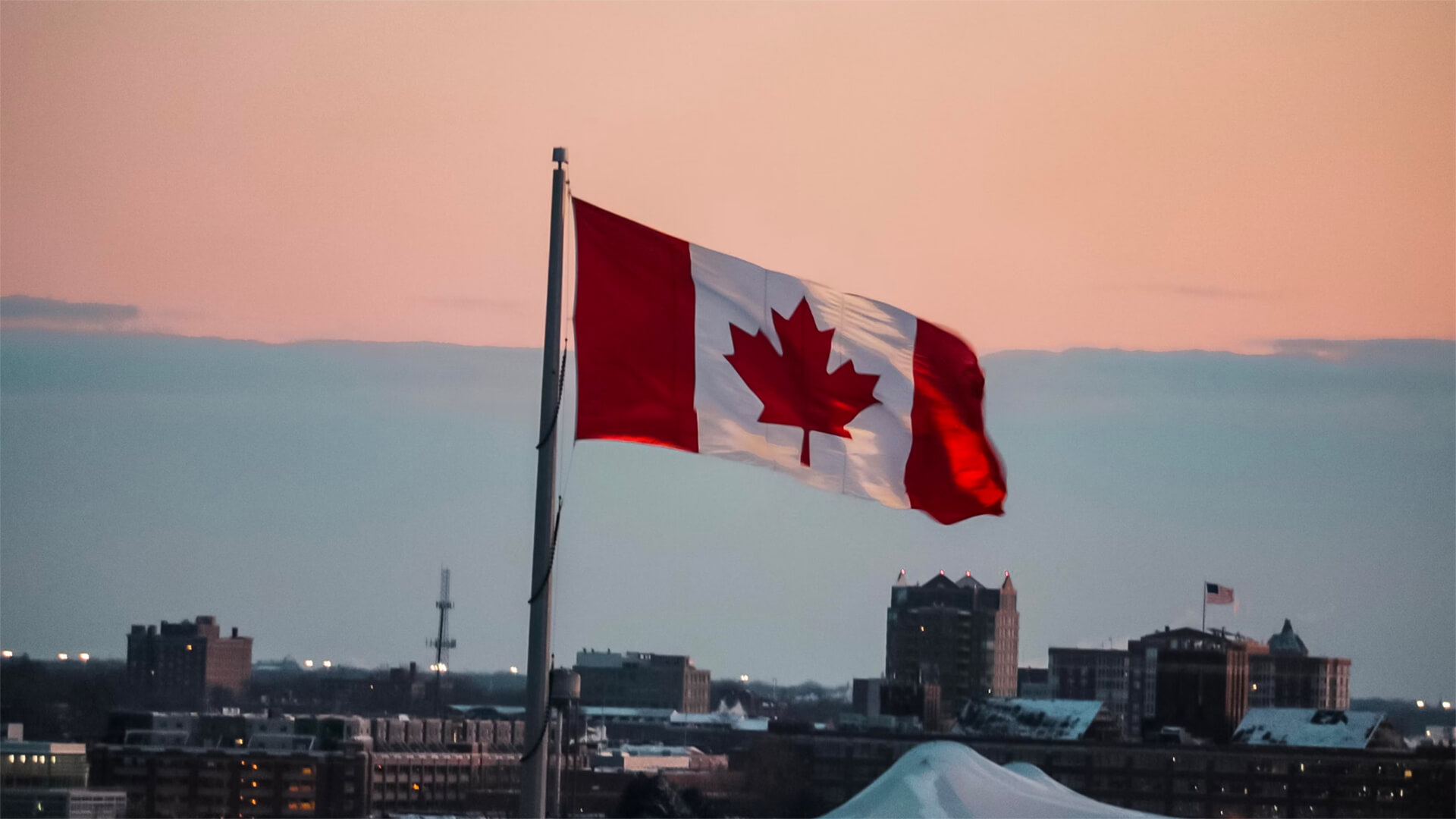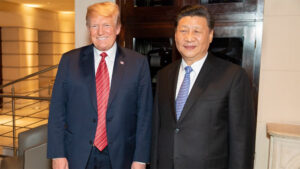FOR MORE ON THE POST-AMERICAN WORLD, SEE DISUNITED NATIONS

The Accidental Superpower: Ten Years On
With a new “10 years later” epilogue for every chapter, comes an eye-opening assessment of American power and deglobalization in the bestselling tradition of The World is Flat and The Next 100 Years.
Today, we’re looking at the Great White North. While they’re near the US, they still have plenty of issues to sort out before seeing a clear path to success in a deglobalized world.
The Canadians are having a bit of a demographic problem. While immigration has solved some of their problems – leveling out income levels and addressing demographic decline – it’s stirred up a handful of new ones. The most significant being heightened societal tensions and an increase in housing costs.
There’s another new issue on the horizon, and it’s one that will only worsen over the next few years. The US is becoming more protectionist, and the trade concessions the Canadians have known and loved for so long will no longer be around.
US-Canda relations will remain healthy, just a bit more direct and harsher than they once were. As long as Canada can get its ducks in a row, they’ll be just fine in the next chapter of the global story.
Here at Zeihan On Geopolitics we select a single charity to sponsor. We have two criteria:
First, we look across the world and use our skill sets to identify where the needs are most acute. Second, we look for an institution with preexisting networks for both materials gathering and aid distribution. That way we know every cent of our donation is not simply going directly to where help is needed most, but our donations serve as a force multiplier for a system already in existence. Then we give what we can.
Today, our chosen charity is a group called Medshare, which provides emergency medical services to communities in need, with a very heavy emphasis on locations facing acute crises. Medshare operates right in the thick of it. Until future notice, every cent we earn from every book we sell in every format through every retailer is going to Medshare’s Ukraine fund.
And then there’s you.
Our newsletters and videologues are not only free, they will always be free. We also will never share your contact information with anyone. All we ask is that if you find one of our releases in any way useful, that you make a donation to Medshare. Over one third of Ukraine’s pre-war population has either been forced from their homes, kidnapped and shipped to Russia, or is trying to survive in occupied lands. This is our way to help who we can. Please, join us.
TranscripT
Hey everybody. Peter Zeihan here coming to you from Colorado. And on this chilly morning, I thought it would be a great time to talk about our neighbors to the Great White North, the Canadians specifically. This is an entry in our post American series about what happens in the world where the United States becomes less interested in really everything. Now, Canada today has three major problems.
The first one is immigration. Now, this is the most pro-immigration country in the world because they faced a German or an Italian or Korean style demographic decline and collapse as recently as 20 years ago. But unlike the Germans or the Italians or the Koreans, they decided to reach towards immigration as a way to address it. And so over the course of the next 15 years, they brought in something obscene, like 4 million migrants, more than 10% of the population, with most of them being under age 35.
So unlike the immigration debate they had been on before, everyone came in in the fifties and the retired and the Canadians never got more money out of them in taxes and than they paid in services for pensions. These are people who are going to pay into the system and contribute as workers and consumers for decades before they become a liability.
And that is changed the demographic of Canada because they’re bringing in people who have already been through primary and secondary education and are ready to work and spend and pay taxes. So it’s kind of the best of all deals from a demographic point of view. The complication, of course, is that these are people who are coming from places they don’t intend to return to, and so they have to have a place to live.
And if you have to have a place to live, you will pay whatever you have to do it. And that is driven up housing costs in all of the gateway cities in Canada that most notably Montreal, Vancouver and Toronto and is now even reached into the secondary cities, places like even Winnipeg. And that’s made a lot of social tension in Canada that didn’t exist before.
Nowhere near the nativist sentiments that we’re seeing a lot of the rest of the world because, you know, this is still Canada, but it is notable. The second problem is income imbalance. Now, this is something that is also gotten a little bit better. If you go back 15, 20 years, you will be in a situation where there was only one province, Alberta, that was, in effect, pain for everyone.
All the other provinces were aging towards mass retire amant with the chemical to the furthest along in the Ontarians not far behind that, And the whole compact that had allowed Canada to exist was basically that Ontario taxpayers would pay for Quebec to not succeed. Well, that only works until the Ontarians start to hit mass retirement, and that left it to the Albertans to pay for everything, and they were pretty cheesed off about it.
Well, because of that immigration surge, suddenly there are more people in British Columbia and Ontario, and to a lesser degree Quebec to pay for that compact and that’s bought the Canadian state a lot of wiggle room. But the third problem is one that’s definitely not going to get better, and that’s the United States. Now, Canada has always benefited from the fact that it is from population point of view, very small.
And has it posed a threat to the American mainland since the war of 1812? However, they have managed to wring concession after concession after concession out of Washington simply because they’re not all that important. So when the United States gets embroiled in like the Cuban Missile Crisis or the Berlin Wall fiasco or the Iraq war, whatever it happens to be, Canada can say, you know, we’re here, we will help you.
But that exchange, could we get a little concessions on auto parts that worked throughout the Cold War and into the post-Cold War period? But when you get into the post-9-11 period, and especially Trump and beyond, where the United States starts to equate trade issues with national security and more directly, all of a sudden Canada doesn’t have anywhere to run.
And as the United States steps back from maintaining the world, there are less things like the Berlin airlift that we hear about. And Canada goes from being like number 23 on the American watch list to like number three or four. And in that sort of situation, the Canadians have lost their wiggle room. So good for them. But Canadians have found a way to at least manage their immigration issue, and they’ve found a way to kind of deaden think of it like geopolitical novocaine, their internal imbalances.
But that’s coming at the cost of a much harsher, more direct, more bare knuckled relationship with the United States, because the United States that is really only concerned with North America must put more of its attention towards Canada. And since the Canadians have always been in a Confederacy where different provinces basically set different free policy, even that makes Canada as a whole one of the most protectionist countries that the United States deals with on a regular basis.
And now we’re paying attention to that. And we have a lot more lovers than they do in the relationship. All right. I don’t know who’s next. We’ll get back to you.








